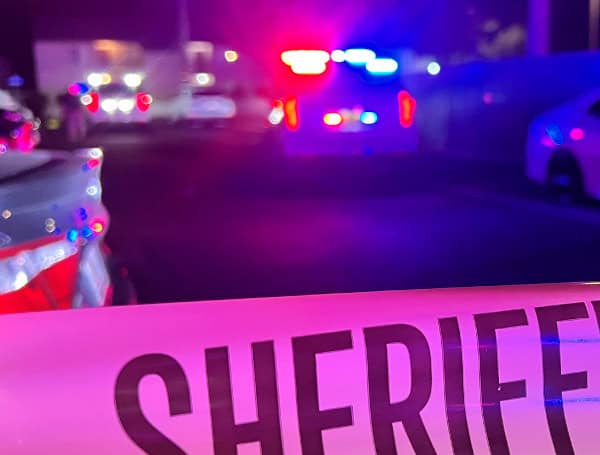Victim shaming in sexual assault cases is a major issue in our society, affecting many survivors across different sectors. Historically, cultural and societal norms have often blamed victims instead of holding perpetrators accountable. This harmful practice not only perpetuates trauma but also silences survivors, making it an important topic in law, psychology, and social justice. Addressing victim shaming is a must for creating a compassionate and just society where survivors feel supported and empowered to seek justice without fear of judgment or blame.
This article will explore the origins and cultural roots of victim shaming, providing insights into its psychological impact on survivors and the need for empathy and support. It will challenge common misconceptions and stereotypes, examining the role of media and societal influences. Finally, the article will suggest actionable steps for individuals and communities to foster a culture of support and accountability, aiming to replace blame with compassion. For those seeking legal advice or support, consulting a sexual assault attorney is an important step in addressing these issues.
The Origins of Victim Shaming
To understand why victim shaming happens, we need to look at history and culture. In many societies, especially those with strict gender roles, victims, particularly women, are often blamed instead of supported. Ancient laws and customs sometimes held victims responsible for not stopping their assault, which led to a culture that blamed the vulnerable instead of the attacker.
Over time, these attitudes became part of the culture, reinforced by media and public opinion. The idea of the “perfect victim” and the unfair burden of proof on survivors contribute to this harmful tradition. Understanding where victim shaming comes from shows the need for societal changes toward empathy and justice.
The Psychological Impact on Survivors
The psychological impact on survivors of sexual assault is significant, often worsened by the harmful practice of victim shaming. Victims may experience severe emotional distress, anxiety, depression, and a deep sense of isolation. Being blamed for their own assault can lead to self-doubt, shame, and reluctance to seek help or report the crime.
This negative reinforcement lowers their self-esteem and can delay or even stop their healing process. Empathy and support from friends, family, and the community are essential to help survivors reclaim their lives. Understanding their traumatic experience without judgment creates a safe space for recovery.
Challenging Misconceptions and Stereotypes
Understanding and supporting survivors of sexual assault requires breaking down common misconceptions and stereotypes. Many people think victims should act or react in a specific way during or after an assault, but these ideas are based on harmful myths. Some believe a victim should have fought back or that their behavior somehow invited the assault. These beliefs ignore the complex responses to trauma, such as freezing or complying to survive.
Media portrayals also create stereotypes about “real” victims, suggesting only certain types of individuals, like provocatively dressed or intoxicated women, are assaulted. This misinformation further stigmatizes victims who do not fit these narrow profiles. Additionally, the false assumption that most reports are untrue silences those who are hesitant to come forward.
Media and Societal Influence
Media portrayal and societal attitudes greatly influence how we see sexual assault, often reinforcing harmful stereotypes and blaming victims. News outlets and entertainment media frequently highlight a victim’s behavior, clothing, or past, unintentionally suggesting they are responsible for their assault. This shifts public perception, causing people to doubt victims rather than support them.
Society also perpetuates these harmful views by normalizing the idea that victims could have prevented the assault. However, media and society can change these harmful narratives. By focusing on holding perpetrators accountable and sharing detailed stories of survivors, the media can promote understanding and empathy. Society can also improve through education and advocacy, helping to create a culture where survivors are more likely to be believed and supported.
Creating a Culture of Support and Accountability
Creating a culture of support and accountability needs effort from everyone—individuals, communities, and institutions. Here’s how to start: Individuals can learn about sexual assault and the harm of victim shaming. Practicing empathy and listening to survivors without judging is key.
Communities can set up support networks and run awareness campaigns to educate people and change local attitudes. Institutions like schools, workplaces, and media organizations should create policies that support survivors and hold offenders accountable. This includes training on consent and how to report incidents. Encouraging open conversations, creating safe spaces, and making sure support services are easy to access are key steps.
Addressing victim shaming in sexual assault cases requires a collective effort to shift societal norms and foster a culture of empathy and accountability. By understanding the historical and cultural roots of victim shaming, we can recognize the deep-seated biases that perpetuate this harmful practice. The psychological impact on survivors is profound, necessitating a supportive environment for their recovery. Challenging misconceptions and stereotypes about victims is essential to breaking down barriers that hinder justice and support. Media and societal influences must pivot towards narratives that hold perpetrators accountable while supporting survivors. Through education, policy changes, and community engagement, we can create a compassionate society that prioritizes the well-being and dignity of survivors.
Please make a small donation to the Tampa Free Press to help sustain independent journalism. Your contribution enables us to continue delivering high-quality, local, and national news coverage.
Android Users: Download our free app to stay up-to-date on the latest news.
Connect with us: Follow the Tampa Free Press on Facebook and Twitter for breaking news and updates.
Sign up: Subscribe to our free newsletter for a curated selection of top stories delivered straight to your inbox.



